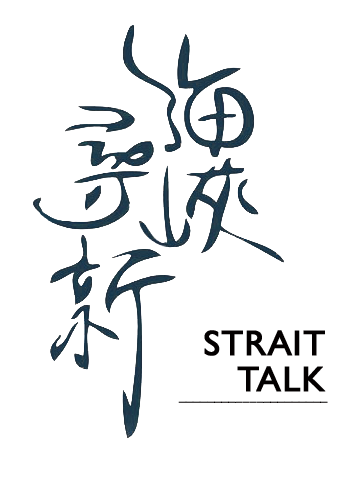Strait Talk is dedicated to empowering youth to promote peace across the Taiwan Strait.
About us
Strait Talk is a non-partisan dialogue workshop that empowers young people from both sides of the Taiwan Strait to collaborate in transforming the Taiwan Strait conflict. It is the world’s first initiative that enables direct political dialogue between youth from both sides of the Taiwan Strait with the goal of moving toward peace and understanding.
Strait Talk comprises four chapters based in Taiwan, Hong Kong, and the United States. Every year, each chapter hosts its own week-long Strait Talk dialogue, organized and funded by the local chapter leadership. These efforts are supported by a transnational steering committee, motivated by a common theory of change, and conducted through an innovative model of dialogue and conflict resolution
Strait Talk bridges grassroots youth advocacy and a long-term vision of the role of personal relationships in resolving conflicts. Its process is based on the Interactive Conflict Resolution method, which has been used since the 1960s to facilitate dialogue between people engaged in seemingly intractable conflicts. The basic goals of ICR are to creating personal trust across conflict lines and to empowering youth to develop creative and workable ideas to help spur official dialogue.
Strait Talk is resolving the Taiwan Strait conflict in three steps:
Identifying outstanding young people from the three communities.
Transforming them into active peacemakers through a week-long experience of intense dialogue.
Propelling them and their ideas to positions of influence through a high-level, inter- communal network.
Identifying young people
Strait Talk utilizes a rigorous selection process to select several outstanding university and graduate students and young professionals from Taiwan, Mainland China, and the United States who are invested in resolving the Taiwan Strait conflict. Selected individuals attend Strait Talk as delegates of their respective communities. Young leaders with long-term potential to influence policy, politics, or public opinion are a particular focus for our recruiting process.
Transforming them into active peacemakers
Delegates come together for a week-long seminar of intense self-reflection and dialogue about the Taiwan Strait conflict based on the Interactive Conflict Resolution method. Individually, with their delegation, and as a whole group, delegates explore personal and group identity, sources and catalysts of the conflict, and areas of trust and lack of trust across the Taiwan Strait. The beliefs that each individual brings with her are challenged; some beliefs are reaffirmed, while others are transformed, in a deeply personal process. Working together, they identify concrete measures and incremental steps that can contribute to resolving the conflict.
PROPELLING THEM AND THEIR IDEAS
After reaching consensus, delegates draft a formal, written proposal of recommendations to current leaders grappling with the Taiwan Strait conflict. After returning home, program alumni share their experience through high-level contacts and grassroots youth action. The program’s 900 alumni delegates and organizers remain in contact online, hold frequent gatherings, and are carrying the projects vision for peace and cooperation into positions of influence in diverse fields in each of their respective communities, including law, finance, diplomacy, government, academia, and civil society organizations.

